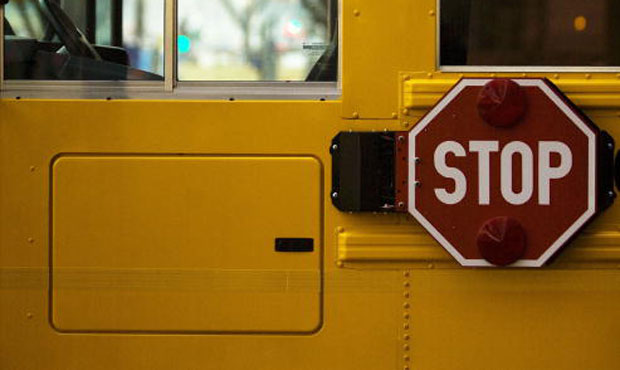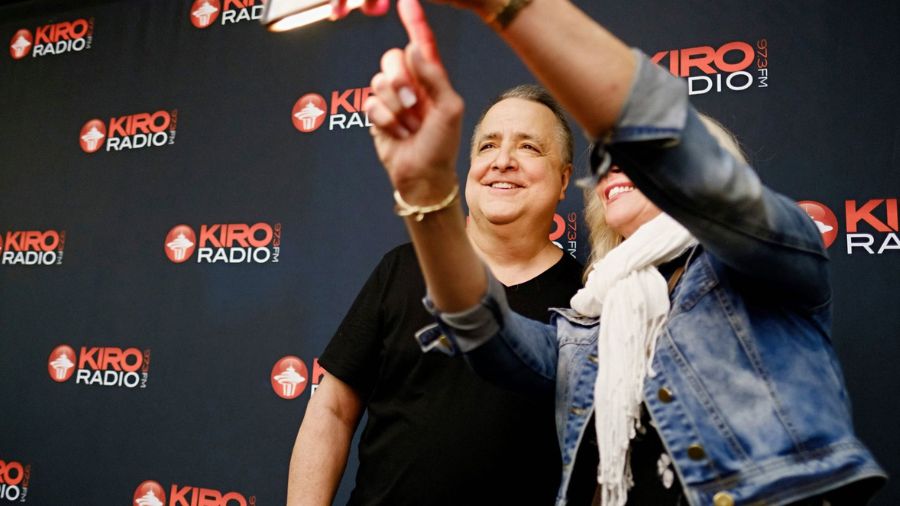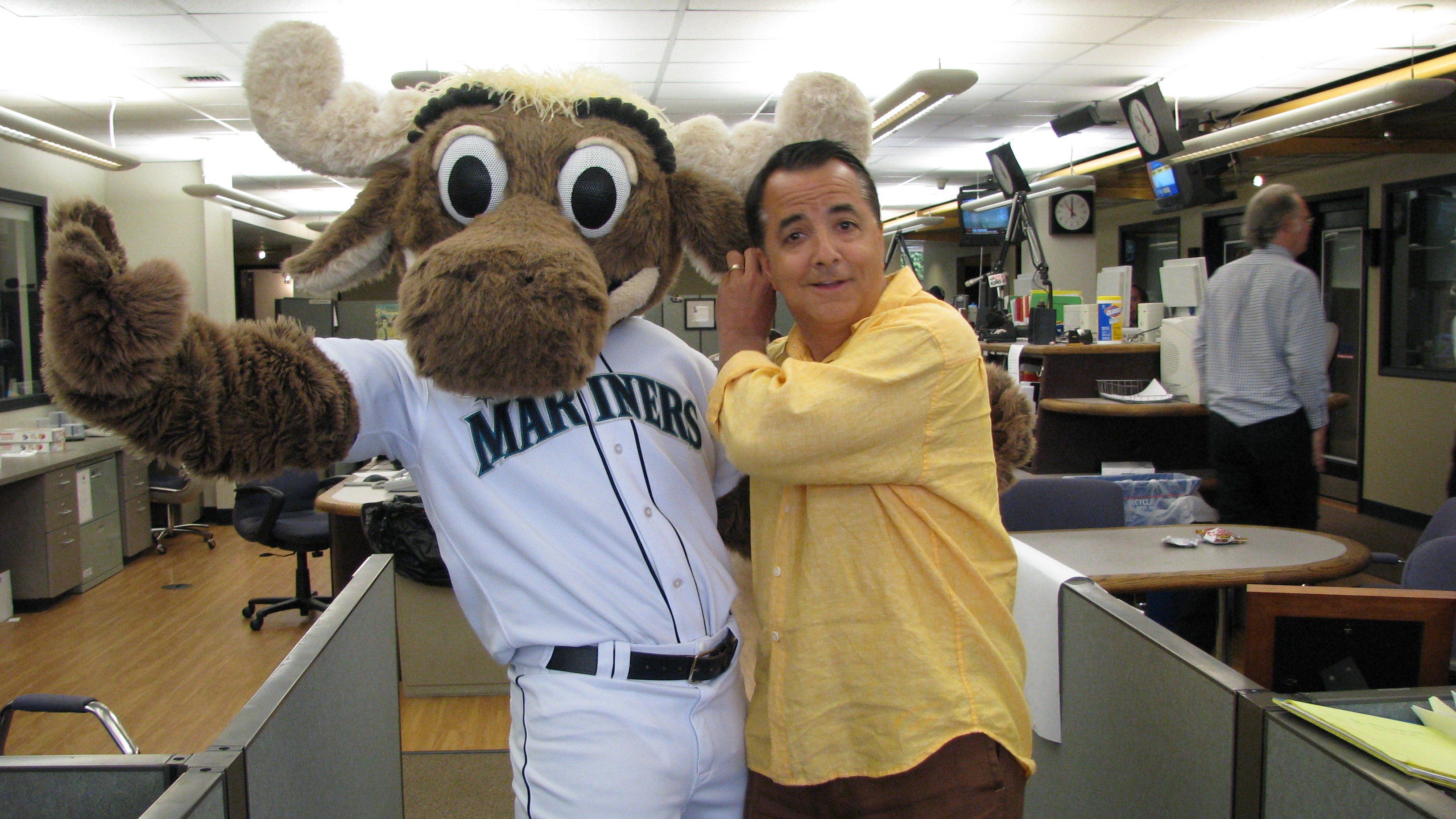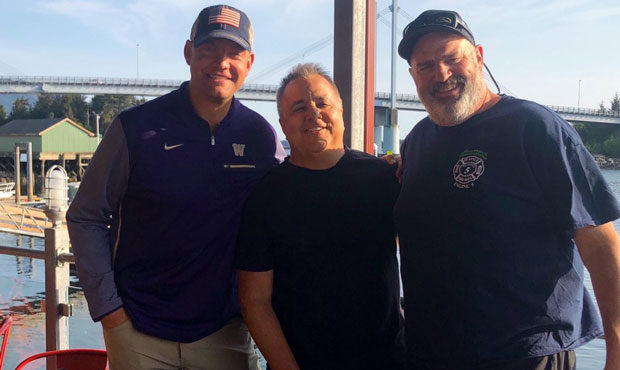Are Washington’s public schools using biased, harmful curriculum?
Apr 5, 2019, 9:34 AM

(Photo by Brendan Smialowski/Getty Images)
(Photo by Brendan Smialowski/Getty Images)
A local student teacher said he is rethinking whether or not to send his son into the Washington public schools — and indeed, even whether or not he wants to go into teaching after all — due to Native American history curriculum included on the Office of the Superintendent of Public Instruction’s website.
“I was absolutely shocked at what they were setting up to be implemented in our schools,” master’s student and soon-to-be-teacher Joshua Campbell told the Dori Monson Show.
Senate Bill 5433 in 2015 made it mandatory for all public schools in Washington to teach “tribal history, culture, treaty rights, contemporary tribal and state government institutions and relations and the contribution of Indian nations to the state of Washington.”
RELATED: Edmonds School District mom shocked by biased AP US History lesson
Campbell began researching the elementary school materials available on the superintendent’s site to see what his son would be learning when starting first grade next year.
In one lesson plan on colonialism, the teacher instructs the students to make a map of a place that is important to them. The teacher picks a pre-arranged student and then tells that student that they would really like to have part of the student’s map to add it to their own. When the student says no, the teacher should tear a piece of the map out.
The student should look shocked and hurt. The observing students will certainly be shocked, and will look immediately to that student. And you should respond by saying something like, ‘What? What’s the big deal? I only took part of it! I really wanted it!’
Campbell finds this lesson plan potentially harmful for first-graders. He pointed out that in many cases, students spend more hours a day with their teacher than their own parents, and therefore, they must have a healthy relationship of trust with that teacher.
“I have a very great responsibility. Trust is one of the most important things,” Campbell said. “I do believe in having a safe classroom, and one of the biggest things about that is, you have to establish a relationship of trust with your students … it literally breaks that trust.”
Washington State Superintendent of Public Instruction Chris Reykdal said that these lesson plans are not mandatory, but simply suggestions; it’s up to a teacher’s discretion which lesson plans to use to meet the mandated standards.
He added that he does not offer comment on individual lesson plans because his office does not design these plans, but rather adopts standards and approves curriculum that teachers want to use. This curriculum has been reviewed by other teachers, he said.
“When we get teachers’ eyes on it, especially when it’s age-appropriate curriculum, that they make a pretty good judgment about that,” Reykdal said.
In another lesson called “Through Salmon Eyes,” a video shows students the tribal view of how the salmon were created, when a woman named Salmon Woman transformed herself into the salmon so that her children would not go hungry.
Campbell thinks it’s great to teach this kind of oral history, but is concerned if it takes the place of science and historical fact.
“They’re using oral history as a source for U.S. history,” he said. “And that’s going to confuse students — we’re talking elementary students here.”
If mythology and history are overlapped like this, he said, how can he be sure that his child won’t believe that documented parts of Native American history are also a myth?
Campbell is also concerned about a lesson on sovereignty where students learn that Native Americans have been in North America since the beginning of time — known as Time Immemorial — and must then look at their own family histories to name their own original homelands. Campbell is concerned that the kids will feel overwhelming guilt at learning that their ancestors took someone else’s homeland and will “take it emotionally.”
“Sovereignty is really, really hard to understand … they need to get to a level in middle school to have the skills to say, ‘Okay, there are multiple perspectives,'” Campbell said.
Reykdal, who used to teach U.S. history in the public schools, said that some might argue that for decades, history books overwhelmingly favored the colonialists, and said that history lessons are just now getting to a point where they give the Native American perspective a fairer amount of attention.
“The argument on the other side is, we had millions of people in this territory, and I mean North America, for tens of thousands of years, and there isn’t a lot of history written about them,” he said. “So they would argue it’s a pretty conservative Anglo-approach to who the heroes were, the white man, and who the enemy was, the Native.”
That said, he hopes the public schools don’t “max the pendulum to the other way with bias” and can have a “nuanced conversation about cultures and integrating cultures and sometimes oppression and where rights are.”
Another lesson compares the conflict between the Native Americans and colonialists to the conflict between Israel and Palestine.
“I’m really comfortable making connections with contemporary conflict over territory, land, historical rights, and that seems pretty darn relevant to me that you had a culture here, many cultures across the Americas for 13,000 years, and then Europeans came along, and obviously there was significant tension,” Reykdal said. “And the textbooks didn’t exactly portray that in a very balanced way for a long time, so it seems pretty relevant that we would try to connect that to something that might be more in the headlines today.”
Campbell was adamant that he very much supports tribal history and the Native American perspective of historic events being taught in public schools. What he has a problem with is the way in which the state is encouraging some of these themes to be taught.
“I’m not against introducing or incorporating tribal culture or history and their perspective of it into the curriculum. What I’m concerned with is the way they’re doing this … they’re trying to introduce context into the children that they don’t understand.”
Reykdal said that while teachers may tend to lean left in their personal political views, he expect teachers to “open up kids’ minds” by keeping a neutral political approach.
“Most professional educators are very responsible to draw a line between where they are personally, while bringing kids a balanced curriculum,” he said.
Campbell, however, disagrees. He now does not want to send his son into the public schools next year, and is even wondering whether he wants to be part of a process that he sees as bordering on indoctrination of young minds.
“I want children to think on their own, they need to have an individual mindset, because they are all unique, and they’re our next generation,” Campbell said. “But the groupthink idea, it does lead to indoctrination.”













